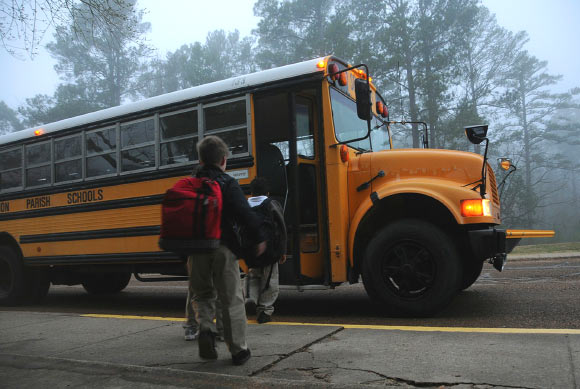In 2017, the Seattle School District decided to delay the start time for secondary schools from 7:50 a.m. to 8:45 a.m. This change allowed a team of researchers from the University of Washington and the Salk Institute for Biological Studies to conduct a pre-/post-study in which they measured sleep-wake cycles. Published in the journal Science Advances, the results show that there was a median increase of 34 minutes of sleep each night, associated with a 4.5% increase in the median grades of the students and an improvement in attendance.

In Seattle, WA, delaying the start time of two high schools by 55 minutes lengthened students’ daily sleep by 34 minutes, and was associated with reduced sleepiness and increased academic performance. Image credit: E.B. Pilgrim.
Teenagers tend to stay up late at night; they usually do not get the recommended eight to ten hours of sleep.
With many teenagers being chronically sleep-deprived, some experts and organizations like the American Academy of Pediatrics have suggested delaying school start times, which would allow students to wake up later without shifting their natural bedtimes (the latter being biologically determined by the circadian clock).
However, quantitative data showing that delaying school start times would increase daily sleep and academic performance is lacking.
Taking advantage of a natural pre/post study setup, created after the Seattle School District delayed high school start time by 55 minutes in 2017, University of Washington’s Professor Horacio de la Iglesia and co-authors measured sleep-wake cycles of sophomore students enrolled in two public high schools — Roosevelt High School and Franklin High School — in Seattle for two weeks using wrist activity devices.
“School start time has serious implications for how students learn and perform in their education,” Professor de la Iglesia said.
“Adolescents are on one schedule. The question is: what schedule will their schools be on?”
The delay had several measurable benefits for students — notably, the median sleep duration increased by 34 minutes in 2017 compared to 2016.
This increase in amount of sleep was associated with a 4.5% increase in the median grades of students at both schools.
Roosevelt High School showed no difference in improved attendance and punctuality between years, but students in Franklin High School, an economically disadvantaged school, had significantly fewer instances of late arrival and absenteeism after the delayed school start time was implemented.
“Our study shows a significant improvement in the sleep duration of students — all by delaying school start times so that they’re more in line with the natural wake-up times of adolescents,” Professor de la Iglesia said.
_____
Gideon P. Dunster et al. 2018. Sleepmore in Seattle: Later school start times are associated with more sleep and better performance in high school students. Science Advances 4 (12): eaau6200; doi: 10.1126/sciadv.aau6200







